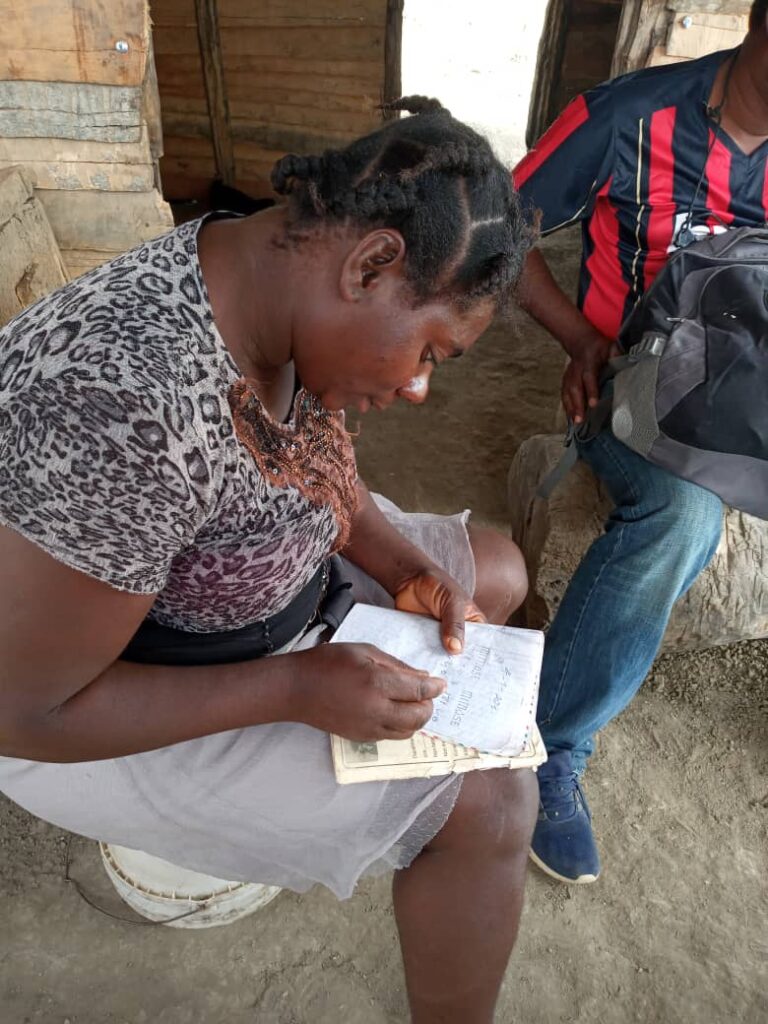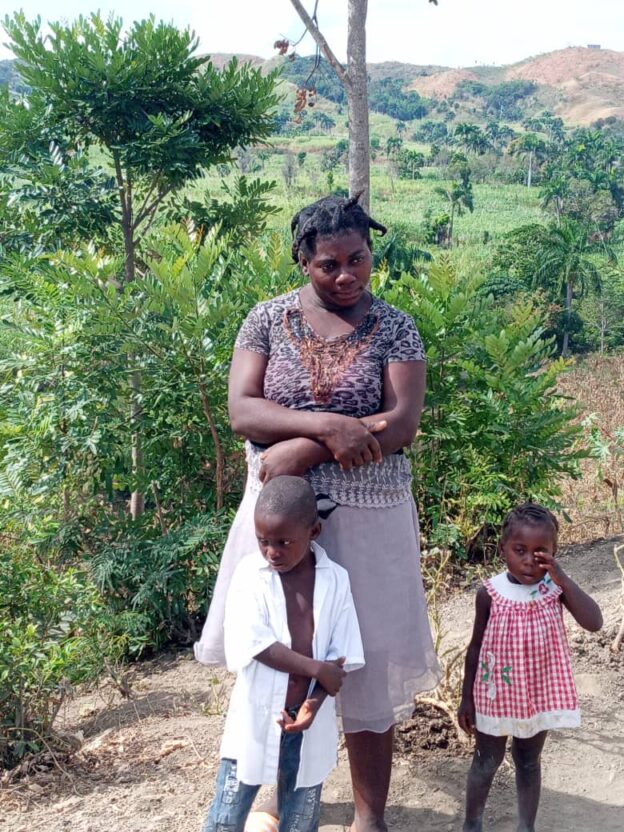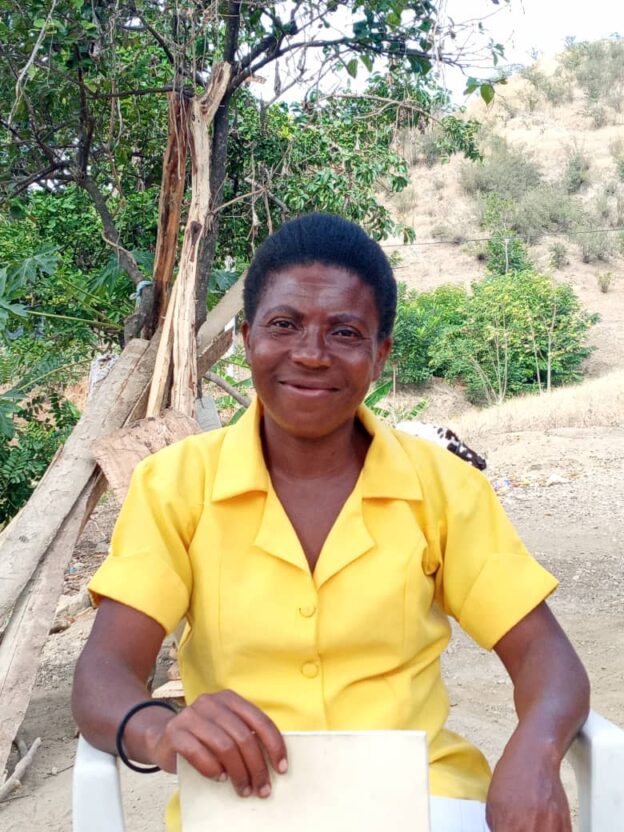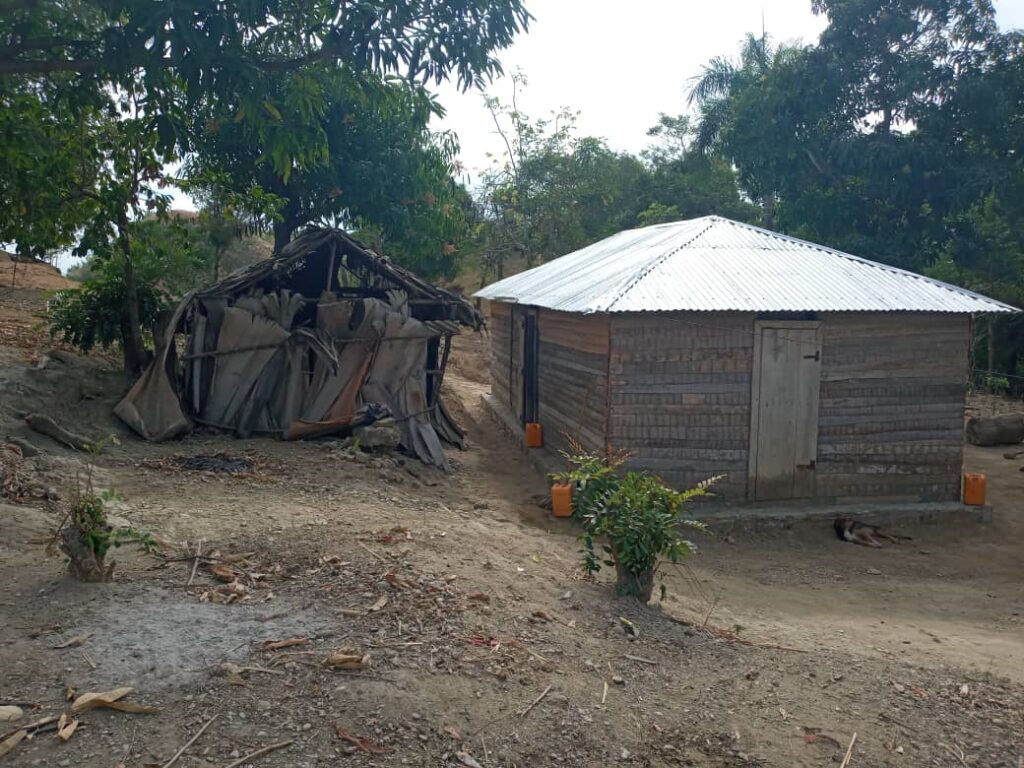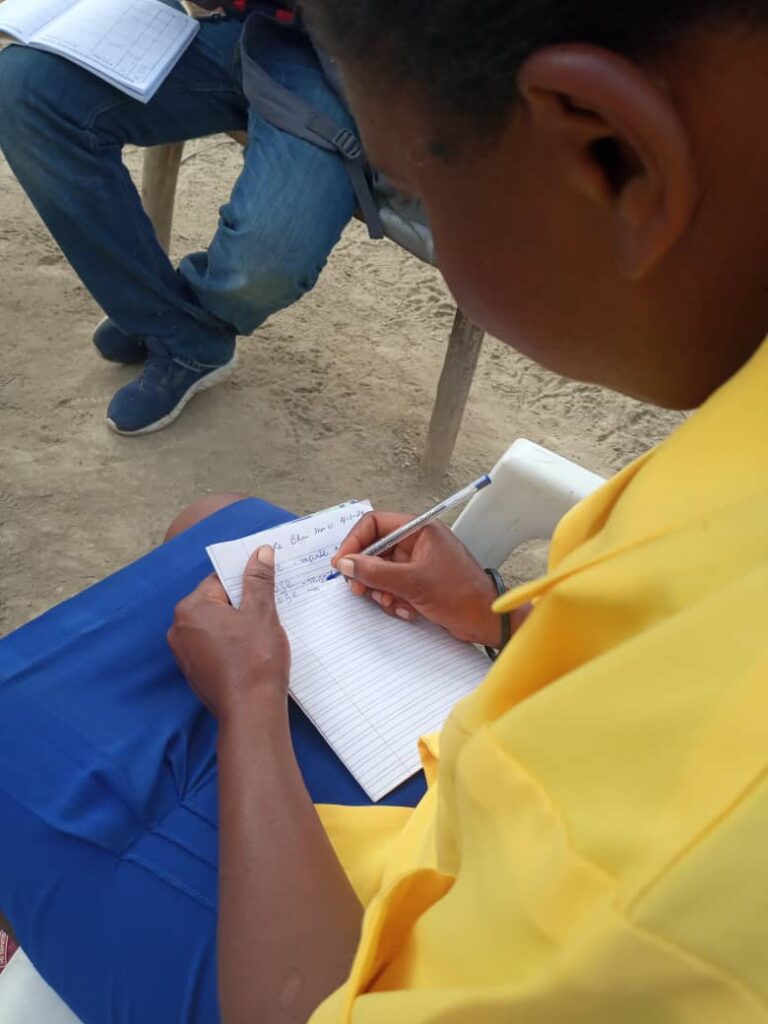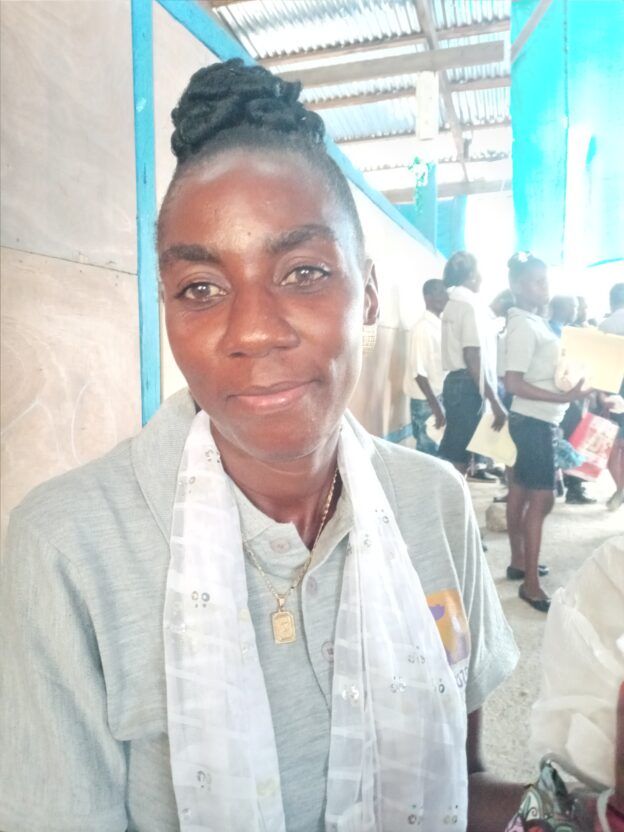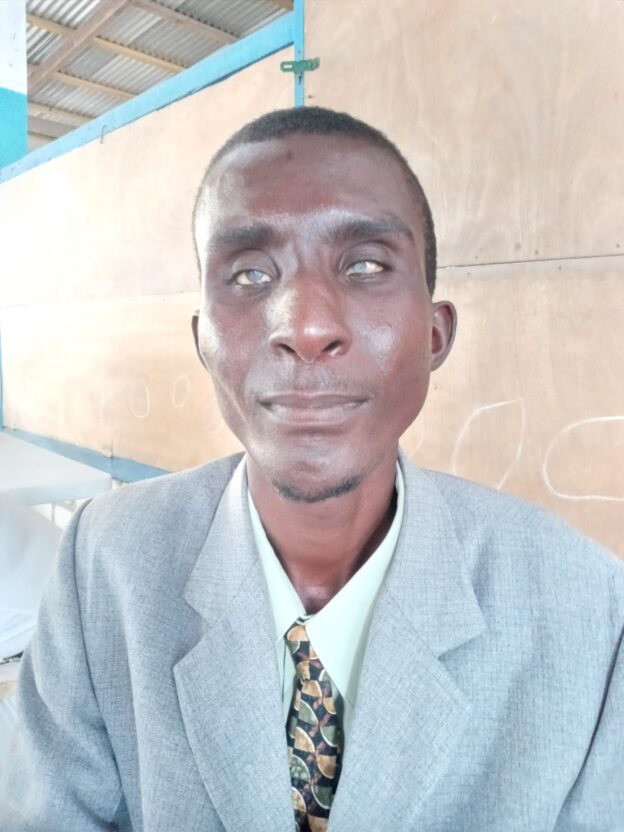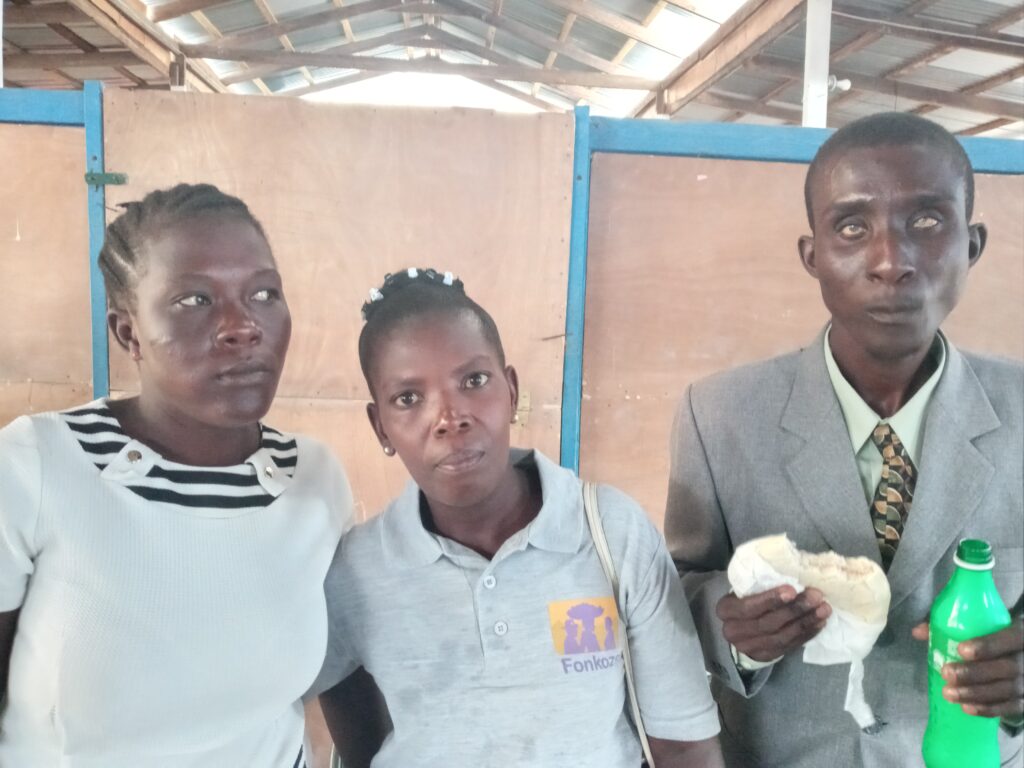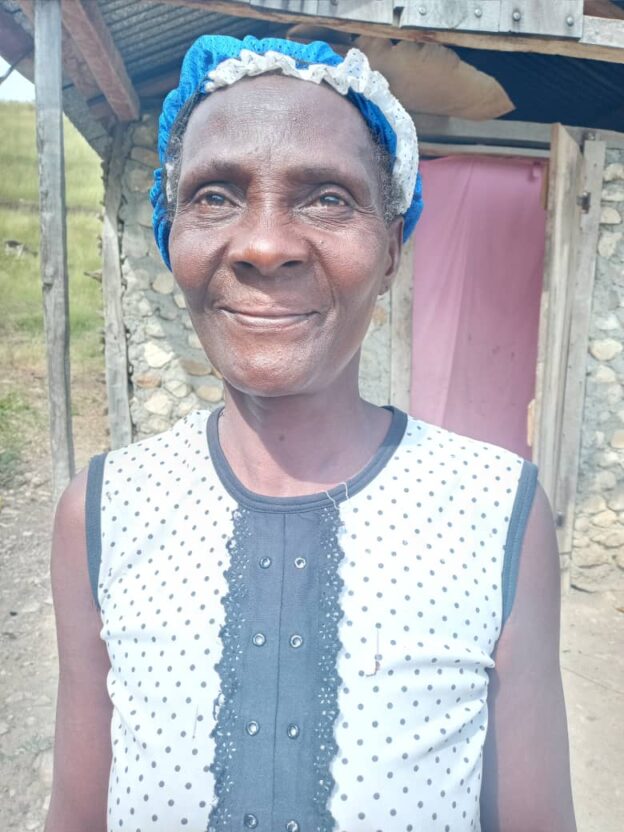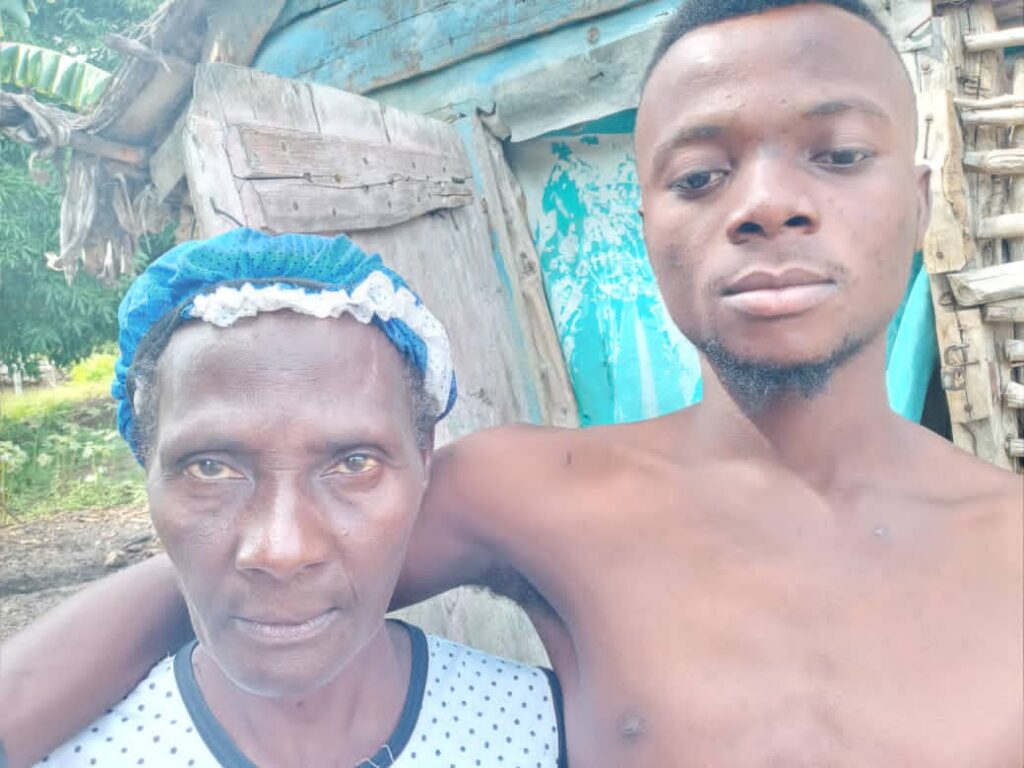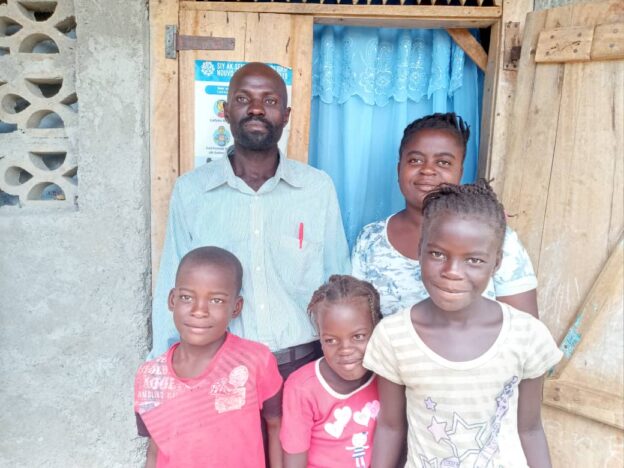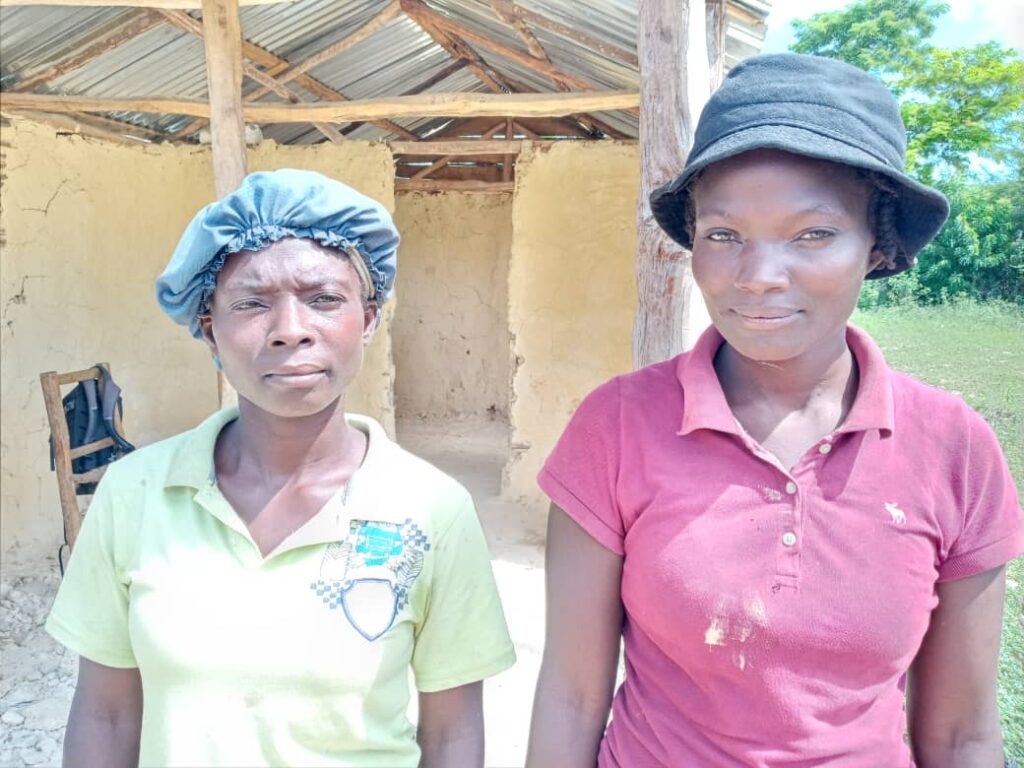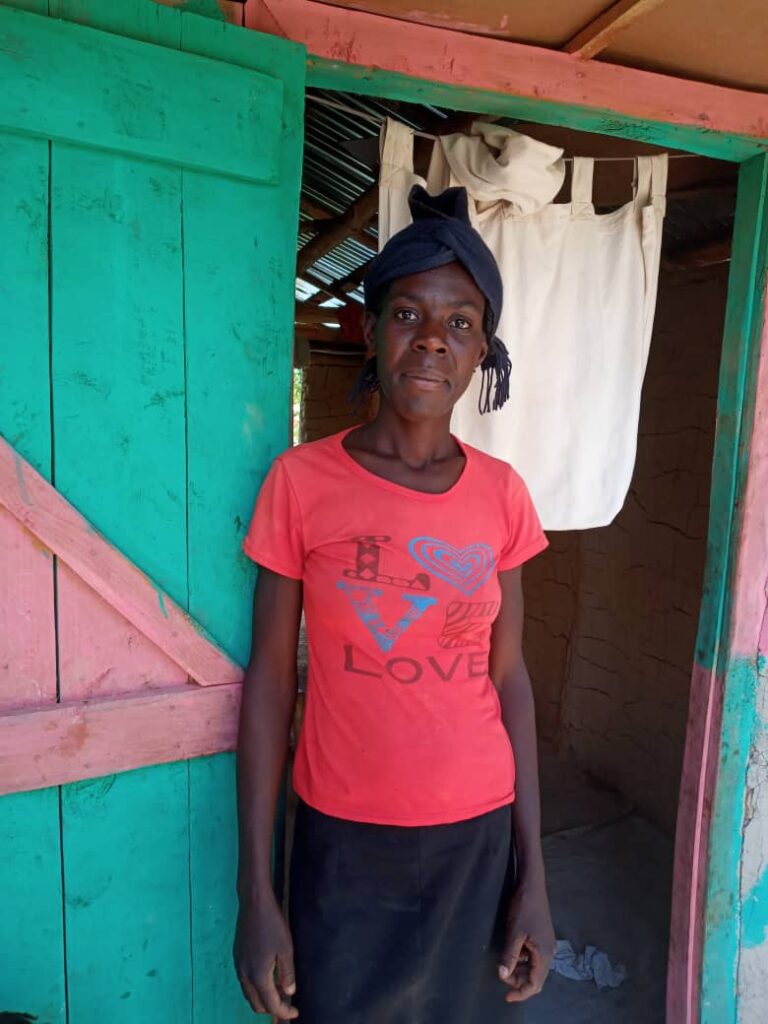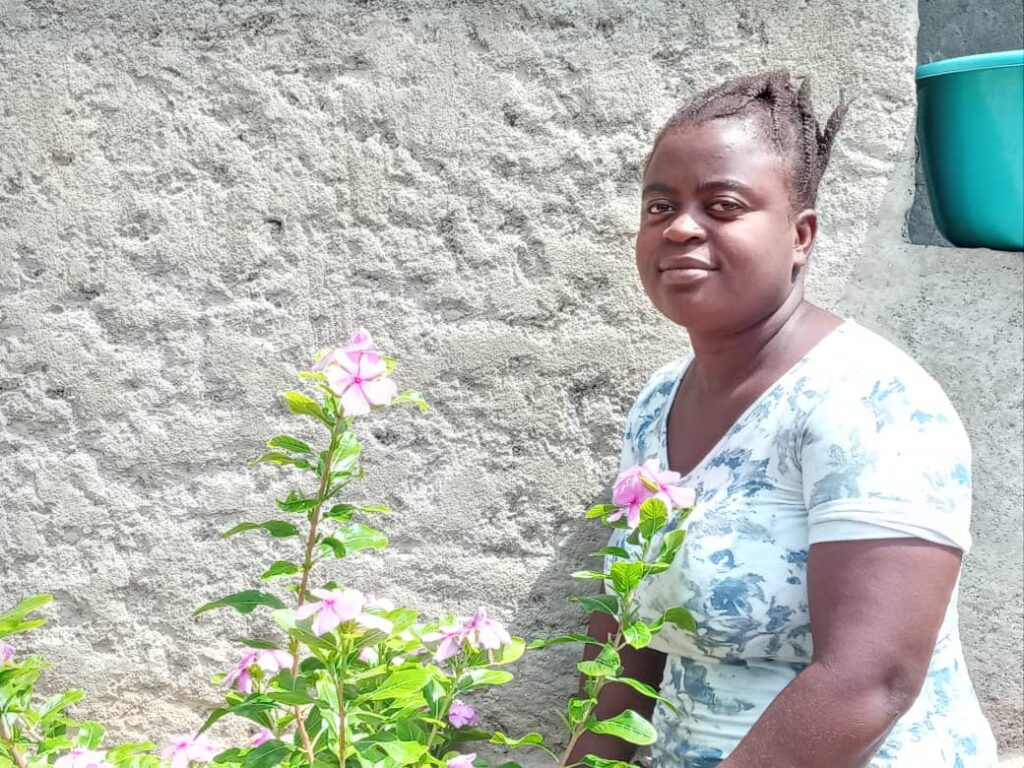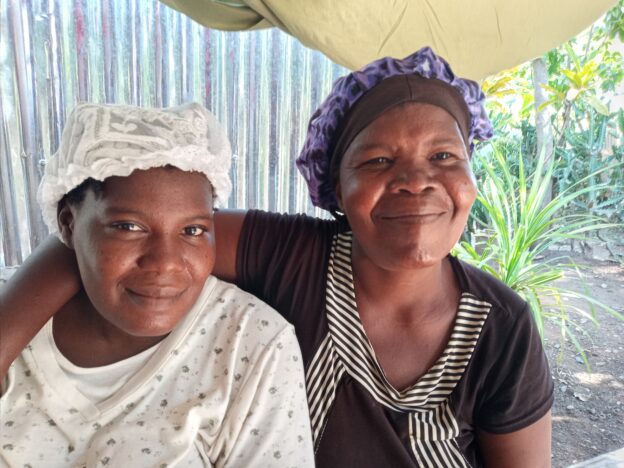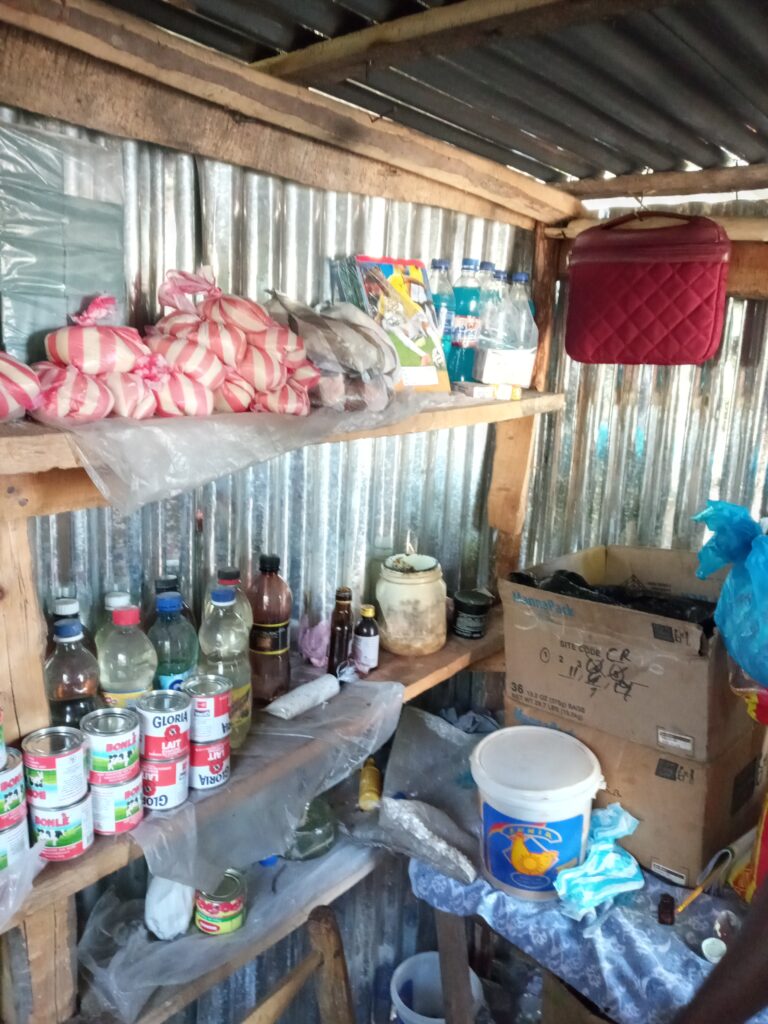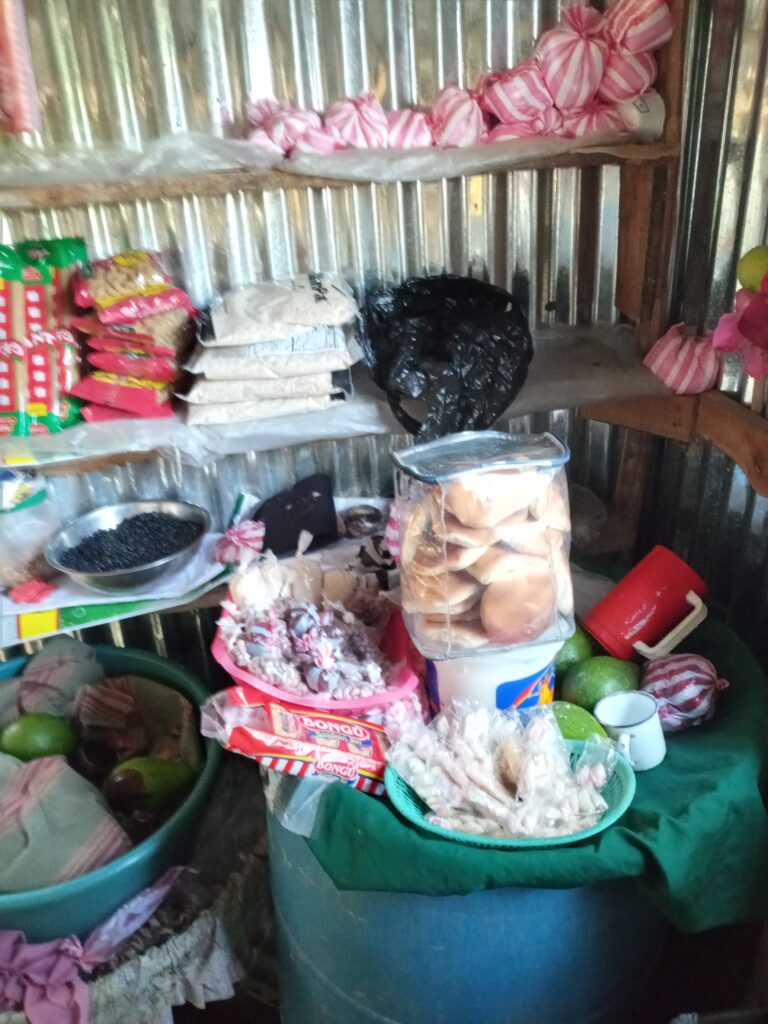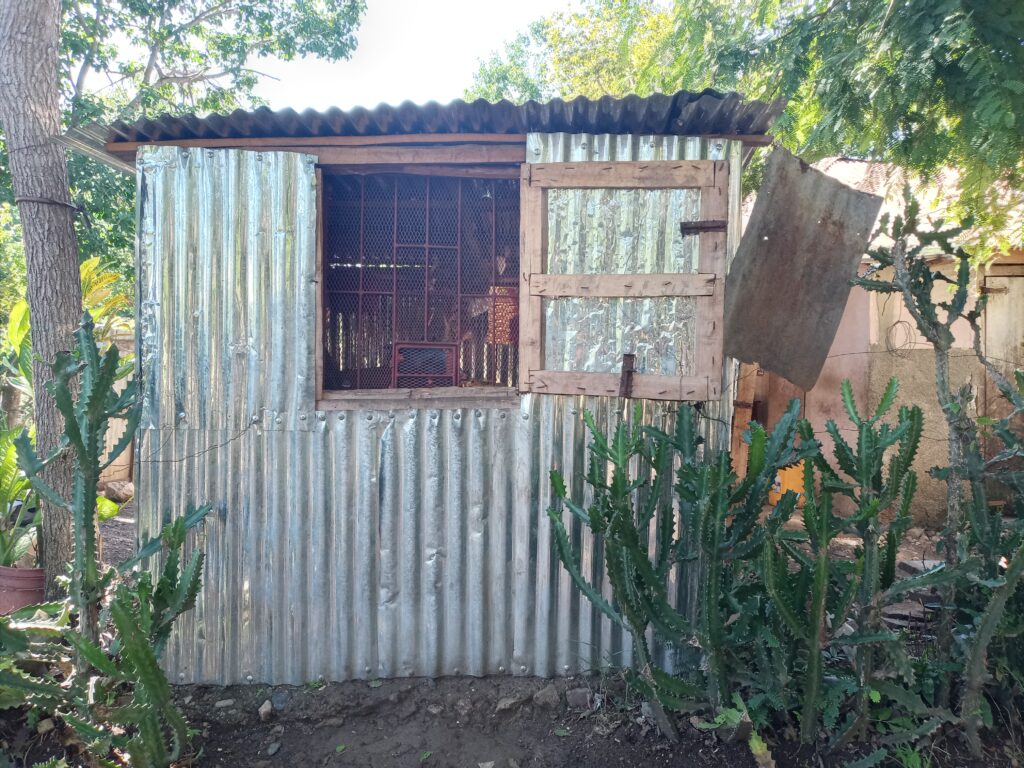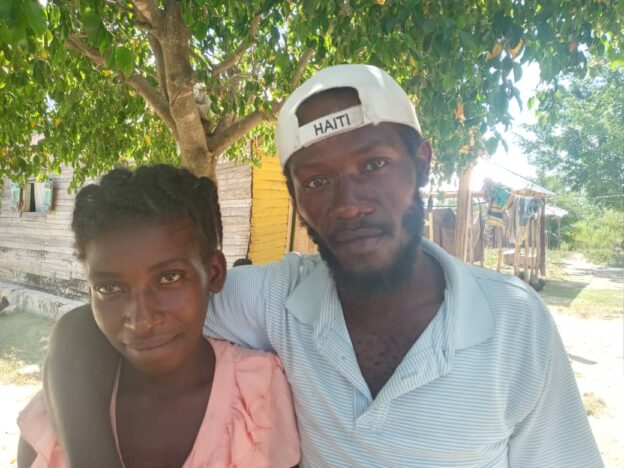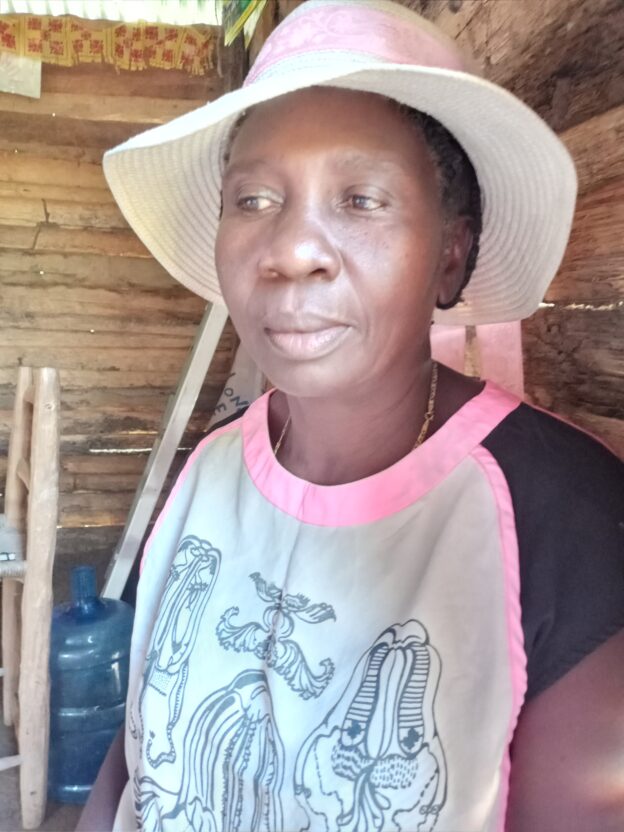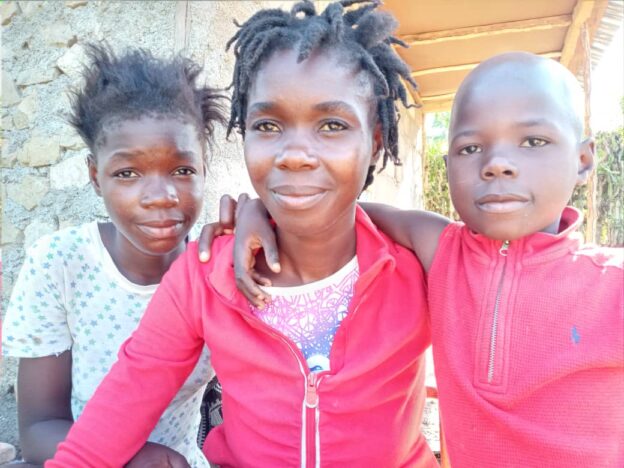Mimose and her husband Dieulifaite live in Gad Mamon with their six young children. Manno, their CLM case manager, has been working with them closely for a year. I have written about the family before. (See: here.)
All CLM families are living with ultra-poverty when they enter the program, and Mimose and her family were especially poor. They lacked the assets they would need to earn income. They had no livestock of their own, for example. Most importantly, they were feeling pressure to leave land they had no claim to. Having been tolerated as squatters for a time by the land’s owner, he had decided make them leave. Manno’s first job was to help them lease the land so they would know where they stood. He negotiated a five-year lease at a very low price, and they were able to pay thanks to help from a visitor who met them.
Mimose has seen some success. The two goats that CLM gave her are now six, and two of the six are pregnant. She could have eight or even ten within weeks. Though her first pig died shortly after she received it, the program was able to help her replace it by helping her collect the money she was owed by those who bought the meat and then providing enough additional funds to make the purchase. That new sow is now pregnant, which could mean a windfall soon. She started raising guinea fowl, and now has eight of them. They sell well, especially around Easter.
So Mimose has started to accumulate a modicum of wealth. She’s worked hard to do so. Manno, however, has been continually frustrated by his sense that Dieukifaite wasn’t pulling his weight, that Mimose was doing all the work. So he finally had a serious conversation with the man. On one hand, he let Dieukifaite understand his sense that the man was simply letting his wife do everything. He does not help much with either farming or animal care. On the other, he made sure to leave an opening, asking Dieukifaite questions about ways in which he’s earned money in the past.
And Dieukifaite started talking proudly about his trade. He used to make pots, he explained. Pots of various sizes, but with one standard shape, are produced in Haiti out of cast aluminum. Small roadside shops use intense charcoal fires to melt old car or motorcycle parts. Pieces from the motor itself are especially sought after. The molten metal is then poured into molds made of tightly-packed soil.
Manno asked him why he wasn’t making pots. Mimose would be excited to sell them for him. Dieukifaite explained that he didn’t have the money he’d need to get started, and a short conversation led Manno to reach in his own pocket and pull out 1000 gourds, just under $15. Dieukifaite had established a workshop within a week.
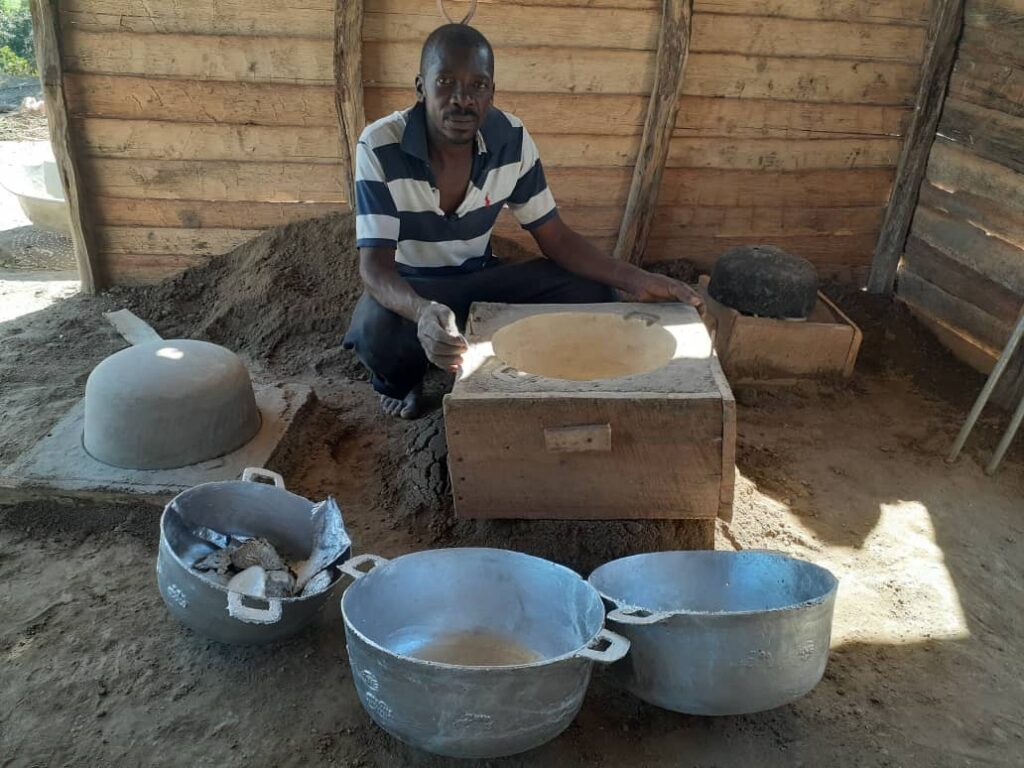
But the family still has a long way to go. Their new house is far from finished, they haven’t yet assembled the lumber they will need. And though the kids were in school before the new year, they haven’t returned since the end of vacation. And Mimose recently went to see a doctor about persistent heartburn, but came back discouraged when she didn’t have the money to pay for the medication he prescribed.
The thing is that she does have that money. Or at least she could have it. She’d just have to sell a chicken or one of her guinea hens. She could afford to send the kids to school as well. That would probably take a goat. But that’s why she’s raising livestock. So she can use the livestock as a resource to improve her life. She takes good care of her animals, but she doesn’t yet see what they can do, what they already should be doing, for her. She still thinks of herself as a desperately poor woman with no means at all.
Manno will have a lot of work to do to help her see herself in a new way. The first step is a plan to help her meet with the principal of her children’s school. Manno is convinced that the principal will be willing to agree to a payment plan that Mimose is capable of respecting.
Manno also wants to encourage her to show more grit as she struggles to learn to write her name. She’s not been been inclined to really try. She hasn’t even be willing to keep her notebook orderly and clean. Manno risks speaking more forcefully than he might otherwise want to speak with an adult, letting Mimose that he will be unhappy with her if she doesn’t do her homework by his next visit. There’s a carrot, too. He promises her older two children a reward if they make sure to help her.
He invests the energy into what might seem trivial because he wants Mimose to see her own success. The prouder she can be of her own accomplishments, the more capable she’ll feel of reaching further goals.
